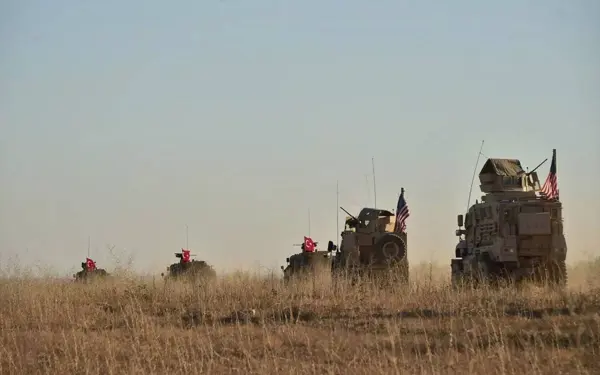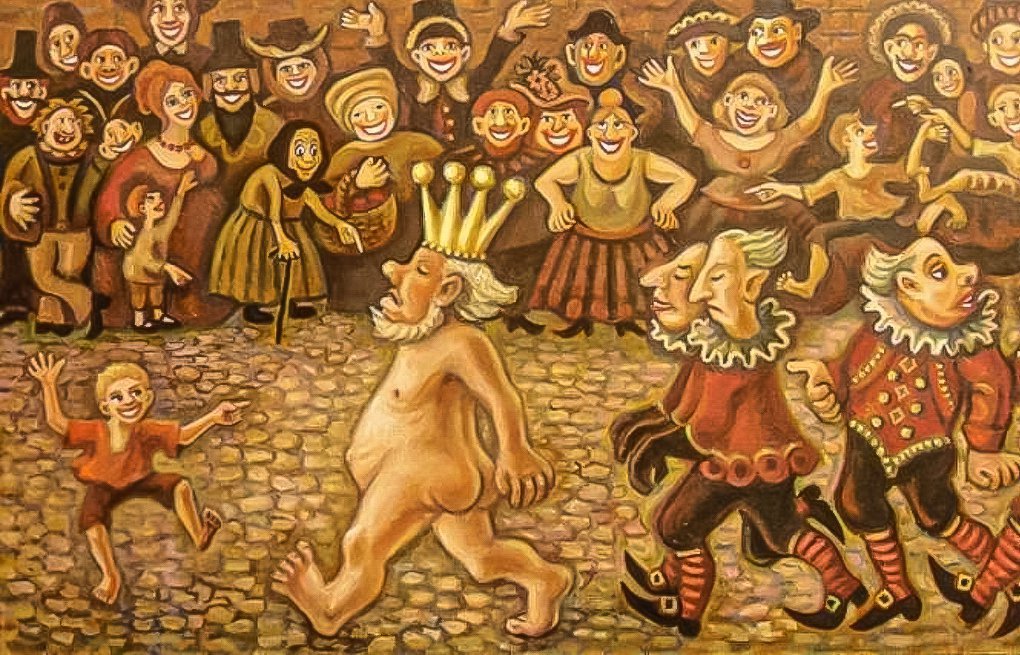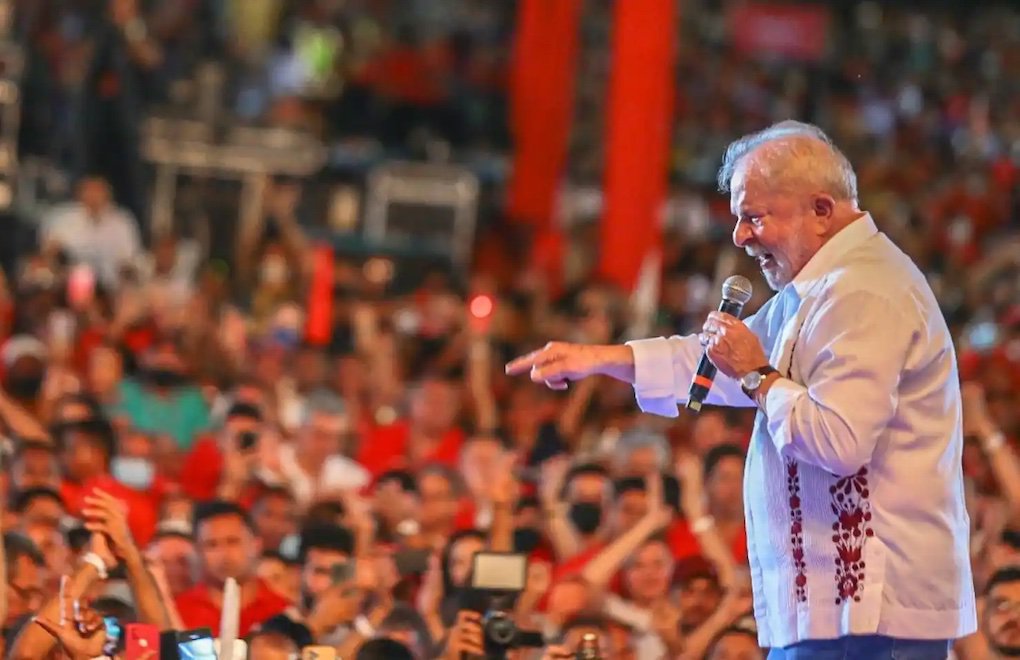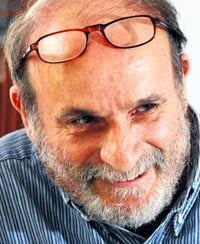Doubts Haunt Turkeys Kurds of The Future
Firat's words reflect general feelings in the Kurdish world that the prospective fall of Saddam Hussein's reign will bring Northern Iraqi Kurds further autonomy and even greater say on future Iraq. However Turkey's strong opposition to prospective Kurdish independent state narrows the limits of Kurdish optimism, bringing their aspirations down to expectations of recognition on a local level in future multi-ethnic Iraq.
Iraqi Kurds, alarmed of imminent Turkish army incursion into Northern Iraq, have this week sighed with relief when Turkey's Chief of staff General Hilmi Ozkok denied reports of Turkish army deployment in Kurdistan.
"Unless our forces in Northern Iraq are not attacked, or the prospect of a massive emigration does not arise, or the armed groups in the region do not engage in fighting, there is no reason for us to send additional troops in the area," Ozkok had told.
"This wise and courageous decision would certainly pave the way for a better understanding and cooperation to address all the legitimate concerns of Turkey and the local Kurdish population," reacts KDP (Kurdistan Democratic Party) leader Mesoud Barzani in a public statement. This "would lead to more stability and security in the region, first and for most for Turkey's own interests," he told journalists.
Iraqi Kurds, who have now been catching the eyes of the Kurdish world for international recognition, inhabit a relatively smaller area of the Kurdish lands divided into four parts after the collapse of the Ottoman Empire.
12 million former Ottoman Kurds, now mostly live in southeastern Turkey. An additional two million Kurds live in northern Iraq, one million in Iran and fewer than one million in Syria. Even smaller number of Kurdish populations also exist in Kyrgyzstan, Azerbaijan and Russia.
Kurds are the sole ethnic group of the former Ottoman Empire who have failed to regroup themselves around a nation state after the disintegration of the empire during and after the first world war: While the Arabs of Maghreb and the East, Bulgarians and Armenians have gained independence, Kurds in addition to tribal divides have fallen under the rule of four different states, with the momentous exception of short-lived Kurdish Republic of Mahabad after the second world war, now part of Iranian territory.
For the region's rival nation-states, and particularly for Turkey, Kurdish nationalism and Kurdish independence have always comprised a perceived security threat what the rulers fear may end up with disintegration of their particular territories. Hence Kurdish aspirations pawned by each against the other for territorial claims.
Throughout modern Turkish history, Kurds have revolted against Turkish rule for 27 times, the last being quelled in 1938 to be followed with coercive assimilation of Kurdish identity, to the extent of denial of the existence of Kurds even in the vocabularies.
However, long decades of Kurdish silence ended in 1984 in Turkey when the PKK (Kurdistan Workers Party) launched guerrilla war in a country where the majority of divided Kurdish people lived.
The insurgency and the ruthless crack-down have cost the lives of 30 thousand, 20 thousand of whom are Kurdish guerrillas, 5 thousand Turkish security force members and 5 thousand civilians.
Until 1999 when Kurdish guerrilla PKK leader Abdullah Ocalan was extradited from his hideout in the Syrian capital of Damascus and handed over to Turkey by the Kenyan police under apparent US supervision, the PKK's struggle for "self-determination" from Turkey had become the major focus for the Kurds of region.
Albeit militarily defeated the PKK's struggle have had major influence for the revival of Kurdish identity, flourishing of suppressed Kurdish language and customs, increased open political activity among Turkey's Kurds in the country and in exile.
Particularly after the abortive Kurdish uprisings which followed the Iraqi defeat in the Gulf War in 1991, PKK influence in northern Iraq grew considerably compelling Ankara extend its operations deep into northern Iraq. Turkish forces staged countless cross-border operations, the biggest in 1996 when Turkish troops inflicted around 2,000 PKK casualties.
Already 15 thousand Turkish troops remain in Northern Iraq and hold two airstrips justified with protecting Turkish border security against PKK infiltration.
Condemned to death in 1999 and his sentence converted to life-time imprisonment, after a brief trial the PKK leader Ocalan Friday criticizes both Turkey's and Iraqi Kurds' stance who from his maximum isolation cell in the Imrali Island, some 30 miles to the south of Istanbul.
"Both the Kurds and Turkey are questioning what the United States may give them," observes Ocalan, who now assumes the title of the head of KADEK (Kurdistan Democracy and Freedom Congress) to replace the PKK after its disbanding itself and declaring a unilateral ceasefire with Turkey.
"The US may give you nothing but bloodshed and exploitation," he replies. "They will give you one, and get back ten. The only way out is to establish a firm democracy of your own and then engage in cautious relations with the US," he says in a recent letter leaked out of incarceration.
According to Ocalan two paths remain open for the future of Kurds: "One is the path of Kurdish nationalism led by Jalal Talabani's Patriotic Union of Kurdistan (PUK) and Mesoud Barzani's KDP. And the other one is the path of democratism led by myself," he claimed.
"Turkey could take the lead in the region should they adopt the democratic" path, a democratic solution to Turkey's Kurdish question," Ocalan told. "But they failed, and now they are isolated. They should relieve themselves from 'Kurdish' phobia. Or there appears the 'democracy' of Bush which boils down to nothing but imperialism."
Baskin Oran an international relations analyst from Ankara's Political Sciences Faculty, criticizes Turkey with acting with unreasonable fears from an independent Kurdish state in Northern Iraq.
"This would not be the end of the world," Oran says. "Imagine if there emerges a 3 million strong independent Kurdistan in Northern Iraq, could they annex the southeastern provinces of 70 million strong Turkey? Or, vice versa, would Turkey's Kurds leave European Union's candidate member Turkey, for a landlocked and impoverished Kurdistan?"
However, "Turkey still fears", Oran observes. "For, successive Turkish governments have not been able to please their Kurdish citizens economically and politically and now they are haunted by doubts of the fidelity of their citizens."
Criticizing the United States with deserting the Kurds three times in their history, in 1918, in 1975 and in 1991 "it is almost assured that Bush Jr. will desert them for a fourth time should the Kurds present a problem for the future puppet Baghdad government," predicts Oran.
"If Turkey is willing to gain even deeper animosity of the Kurds of Iraq, they should send more troops to Northern Iraq and push them closer to the United States to really face with their greatest fear: An independent Kurdish state tied to the United States." (ENDS)
The long and hot summer ahead

'Shamelessness'

LEFT TIDE IN LATIN AMERICA-III
The new task: 'To contribute the reintegration process, to recover the lessons of the Cuban revolution'

LEFT TIDE IN LATIN AMERICA-II
An International to accompany the continental rise of the Left

LEFT TIDE IN LATIN AMERİCA-I
David Adler: "A new vision that is feminist, ecologist, and pluralist"






